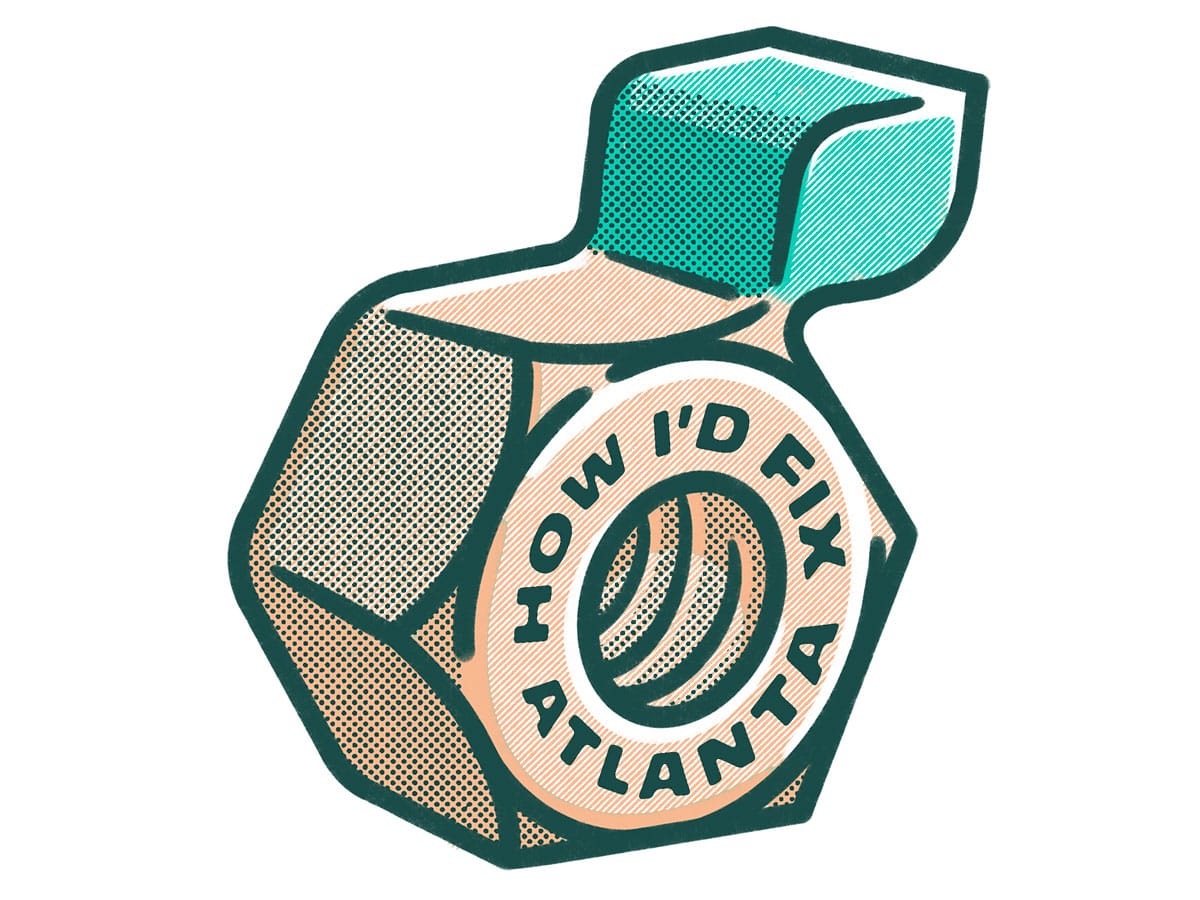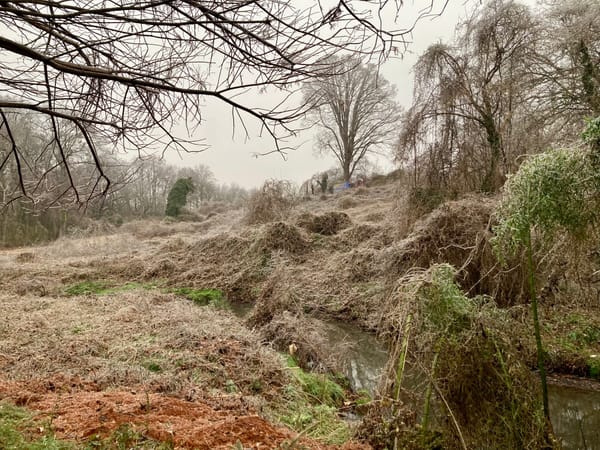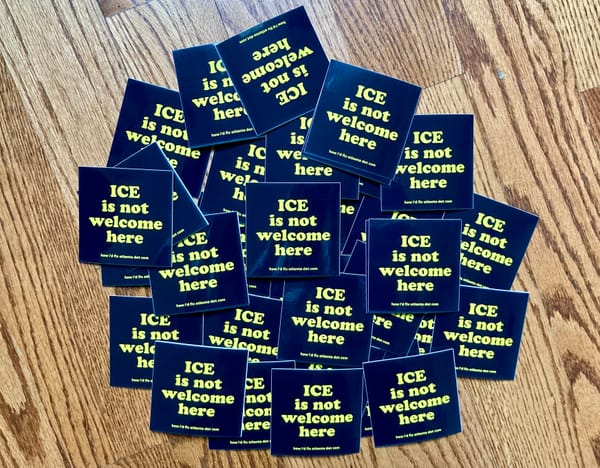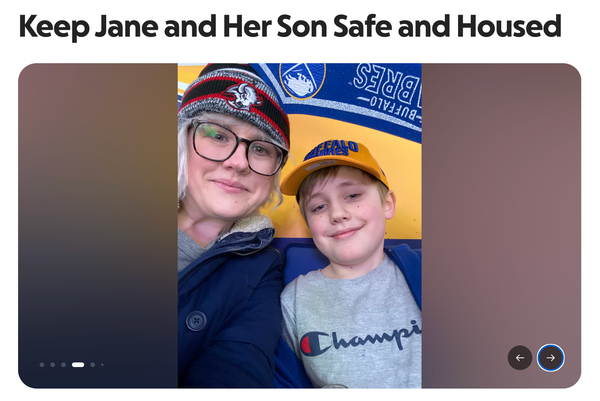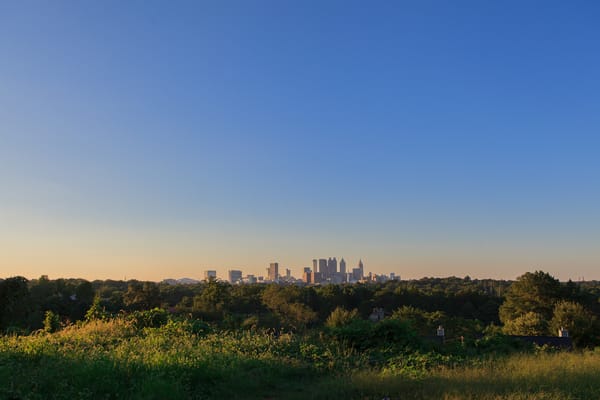How Ruwa Romman Would Fix Atlanta
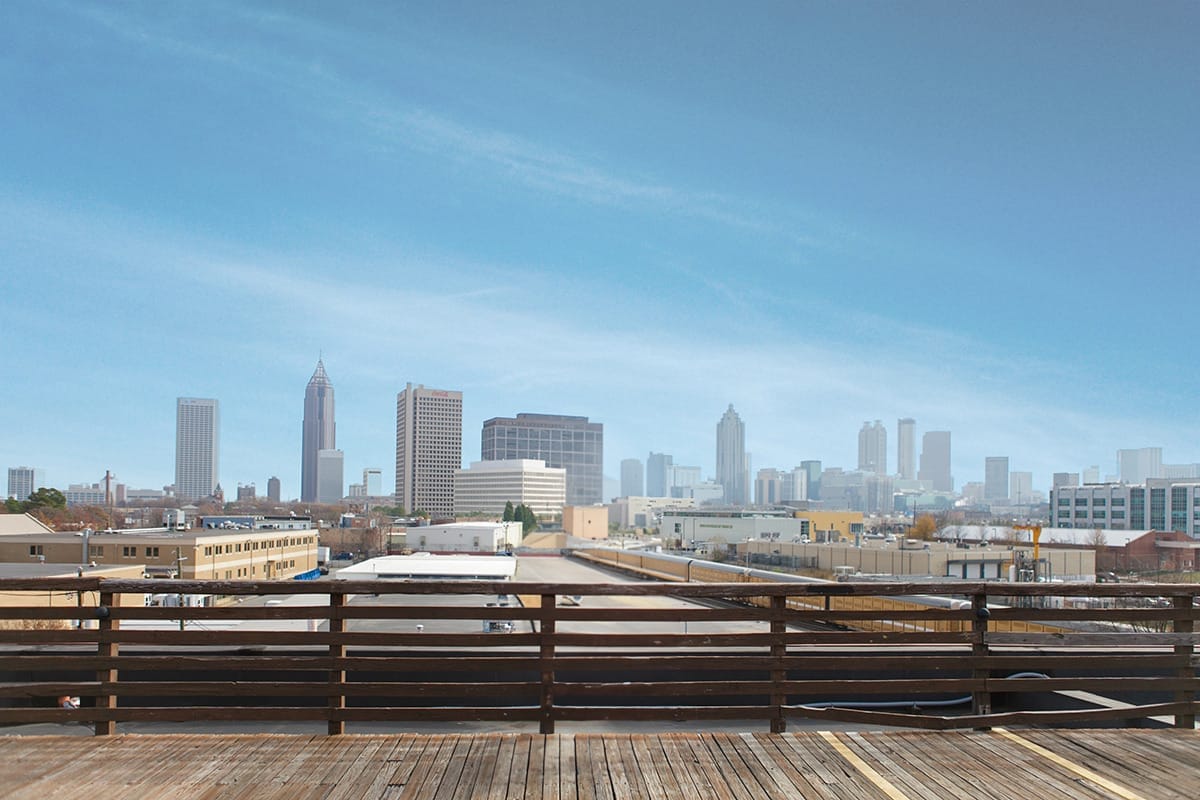
Oh, hello.
I hope your summer's going great so far. Personally, I can't wait for October to get here, but don't let my sweaty mood ruin your good time. Below, we've got a heartfelt piece from Ruwa Romman. But first, some housekeeping in the time-honored form of a bulleted list:
- This is the halfway point of How I'd Fix Atlanta Season Four. As always, that means we're about to take a little break in July. We'll be back in August with five (5) more essays to close out the season...
- ...and a new sponsor will be helping us do it! The Community Foundation for Greater Atlanta has stepped up to bring essays to your inbox. Thanks to their generous patronage, writers this fall will receive $1,000 an essay, which is more than almost anywhere in the world will pay you for this kind of writing.
- We've also got a new sticker on the way! I don't wanna ruin the surprise, so all I'll say for now is that friend of HIFA Richard Wade Morgan made this one. More sticker news soon.
That's all for now! Please enjoy Ruwa's essay. See you when we see you.
How I’d Fix Atlanta — Treat Palestinians As People, Not Discourse
Ruwa Romman
For as long as I can remember, when I meet someone new, inevitably they ask me where I’m from. Usually it’s because my light skin and hazel eyes seem to clash with what they think someone wearing a headscarf should look like. Just as inevitably, with a smile, I say I’m Palestinian. Each time, there’s an awkward pause as the conversation shifts.
These moments are microcosms of what it’s like for someone like me to move around in the world. And sometimes the conversation doesn't just shift. Simply mentioning you are Palestinian ends with someone like the CEO of the Anti-Defamation League abruptly ending a conversation and walking away during a reception with legends like John Lewis.
Our mere existence causes intense consternation for so many. Yet that racism is normalized and even celebrated in some circles. Over the past 20 months, it has reached a deadly crescendo with the ongoing genocide in Gaza, escalating ethnic cleansing in the West Bank, and hate crimes here in the U.S. like the one that claimed the life of six-year-old Wadea al-Fayoume.

But what does all this have to do with Atlanta? After all, according to the Arab American Institute, about 60,000 Arabs live in Georgia. Of those, only 3,000 are Palestinian.
But the reality is that this issue continues to weigh heavily on the entire community. It’s not just Arabs. I’m surprised how many people I meet who know a Palestinian. It used to be their connections and anecdotes centered around the delicious food their friends shared with them, but now, those stories are about how many of their Palestinian friends have lost loved ones in the occupied territories.
Suddenly for those who knew us, being Palestinian was no longer about our rich food, culture, and history, but about the annihilation of our people and the continuing politicization of our humanity. Nothing short of being perfect victims warranted any sympathy. And even then, that often wasn’t enough. Everything we said and did was met with suspicion and sometimes outright hatred. For me personally, the grief threatened to drown me every day.
Of course, we did not have the luxury of grieving. Efforts to silence us were well underway at every level of government. From the Georgia Legislature passing a bill defining antisemitism to conflate with criticism of Israel, to Atlanta’s police continuing to train with the Israeli Army through GILEE, to the Georgia Governor and Emory President violently unleashing Georgia State Patrol on students and professors, Palestinians were forced to set aside our grief as we desperately tried to stop bombs from wiping entire families from existence.
In spite of all of that, a beautiful multifaith, multiracial, multigenerational coalition has emerged demanding the end of these atrocities. People are marching, pressuring their elected officials, mobilizing their friends and neighbors, and so much more. As bleak as this moment is, there is a clear awakening happening as more of the public demands an end to these horrors.
The reality is, people in Atlanta and beyond should care because this issue has been and continues to be used to justify the destruction of our democracy. Firing academics and expelling students for standing with the Palestinian people has been happening for decades. That destruction is now escalating through the disappearing of legal residents for their protected speech. Nefariously, any sympathy with the Palestinian people is being deemed material support for terrorism. It’s dangerous and it’s disgusting. And it won’t stop with Palestinians.
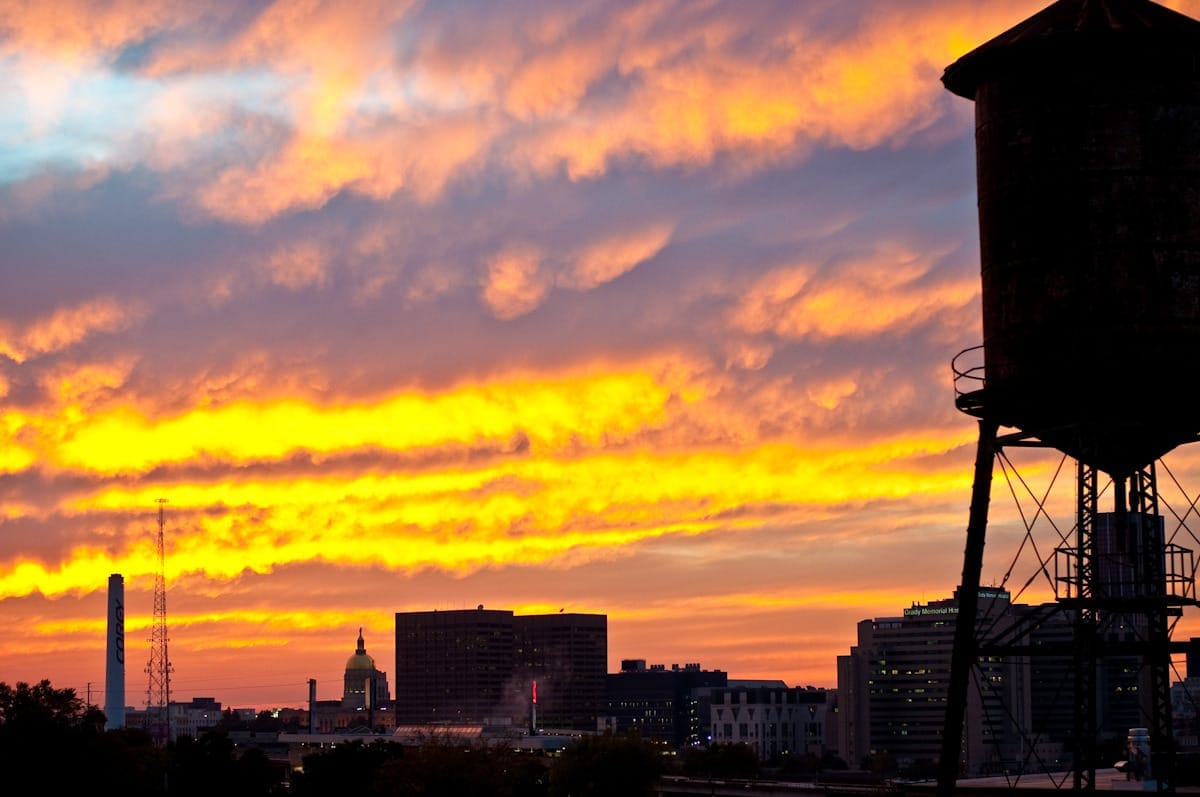
As unbelievable as it all seems, now is the time to recognize the intersections of these oppressive forces and reject them completely even when—especially when!—it comes from a place or a person we find familiar. Maybe that’s someone we considered a friend who helps in the deportation and targeting of people advocating for the rights of Palestinians. Maybe it’s a political candidate we admired, completely failing at this moment. As hard as it is, we must remain firm in our rejection of any and all efforts that justify the unjustifiable.
Anyone who is willing to sacrifice one group of people will eventually betray us all. The same elected officials turning a blind eye—or worse, supporting what is happening to Palestinians—are the same ones justifying police brutality as our cops train with the IDF. They’re the same ones willing to overlook people being picked up by ICE for their speech.
The opposite is true, too. Senator Chris Van Hollen has been consistently taking the moral position throughout his tenure. He went to El Salvador to check on a resident of his state. He’s remained consistently outspoken throughout. Here in Georgia, most Democratic legislators have opposed efforts to criminalize free speech.
So, what can we as ATLiens do? Find the good candidates running in the upcoming municipal races who have shown their commitment to everyone from the poorest to the most marginalized. Candidates like Rohit Malhotra, who have dedicated their careers to loving Atlanta and fighting to make it affordable and safe for everyone. After all, Palestinians have been the canary in the coal mine for a long time. Those that have moral clarity on this issue—Van Hollen, Representative Al Green, and more—have shown immense courage during this Trump term. They’ve demonstrated the ability to recognize and oppose oppression in all forms.
It’s time for our community and our country to move past the instinct to treat Palestinians as discourse and instead recognize what we have to offer at this moment both as warning and as hope. And remember that if they can come for the Palestinians, they can come for you as well—no matter who you are.
We cannot let cynicism and fear immobilize us. Nothing is inevitable. We have a role to play in what our future will look like and how long this dark period of our country will last. That role requires us to recognize that the only way through is firmly locked arm in arm, together. It’s about caring for our neighbors as much as ourselves. And, it’s about holding on to the belief that a just future is inevitable.
Ruwa Romman is the first and only elected Palestinian in Georgia. She serves as State Representative for House District 97 and has been organizing in the state for more than 10 years. Ruwa believes that we need to put public service back into politics and ensure government works for all of us—not just a few.
How I'd Fix Atlanta is an essay series by ATLiens for ATL. In each of these pieces, a thoughtful human argues for one way we could make our city better. Sometimes the ideas are serious. Other times? A little more lighthearted. From infrastructure to food trucks, public transit to wildflowers, nothing is off limits.
How I’d Fix Atlanta was created by Austin L. Ray. It's a free newsletter sent on a Thursday of most months. It's also an annual zine that costs money. Sometimes it’s a performance on a stage. Other times, it’s a fundraiser. It's always a bunch of stickers. Occasionally it's featured on a podcast or a legendary WABE show. How I’d Fix Atlanta is large, it contains multitudes.
Each writer is paid $800 for their essay. Wanna help support the series? Reply to this email to learn more about sponsorship opportunities.
